CPRTP Summer Activities, Events & Resources
The Cancer Prevention Research Training Program (CPRTP) Summer Research Experience is supported by a curriculum of educational and career development activities. Through these activities, students will learn about current and innovative topics in cancer prevention at seminars, explore the possibility of a career in science, and get to know other MD Anderson summer students with similar interests.
CPRTP summer students will engage in interactive learning sessions about cancer prevention and control, as well as professional development workshops on email etiquette, cultivating mentoring experiences, resilience, failure, and imposter phenomenom. In addition, students will learn how to conduct informational interviews with researchers and administrators; give a formal introduction of a speaker and facilitate a group discussion; and by program's conclusion, deliver a 90-second elevator speech.
Because students will be working on different types of research, from bench to behavioral to quantitative and population science, they will learn the interrelatedness of cancer prevention disciplines by seeing the work their fellow trainees have done.
Summer Activities & Events
MD Anderson CATALYST events will be in-person. Check the CATALYST event schedule for dates, times, and locations. Some CATALYST events may have a hybrid option. With the exception of CPRTP orientation, all CPRTP summer events will be on Zoom, including the CPRTP summer exposition.
During the program, summer interns are encouraged to attend department activities. Students may use their free time to virtually shadow faculty or postdocs, meet with mentors, conduct informational interviews, form journal clubs with other trainees, and explore the MD Anderson Research Medical Library.
The onboarding tasks noted below are mandatory, cannot be rescheduled, and are required by MD Anderson to participate in the program. CPRTP Summer interns must keep the last two weeks before the start of the program open to complete time-senstitive onboarding tasks. Before starting the program, students will receive an activities calendar (view an example), along with calendar invitations for MS Outlook and Google. Students must use their electronic calendars to organize each workday. The activities and assignments below will vary each summer and are subject to change.
Pre-Summer Activities (one to two weeks prior to the start of the program)
- Virtual Zoom orientation with the MD Anderson Office of Research Trainee Programs (RTP). This event is mandatory for all interns.
- Pre-summer CPRTP Summer Experience evaluation.
Week one (1) activities (all week one activities will be in-person/on-campus)
- Office of Research Trainee Programs (RTP) check-in (pick up ID badge, complete section 2 of the I-9 Verification Process, and pick up MD Anderson laptop).
- CATALYST Welcome Event
- CATALYST Cancer Biology Bootcamp (Monday and Tuesday)
- CPRTP Summer Orientation Two-day event: 1) Wednesday 9:00 a.m. to 4:00 p.m. and Thursday 9:00 a.m. to 12:00pm)
- Report to mentor (Thursday afternoon following CPRTP orientation)
Mandatory Weekly Events
- CPRTP Career Conversations (Tuesdays, Noon-1 p.m.)
- CPRTP Professional Development Sessions (Thursdays, 4-5 p.m.)
- Cancer Prevention & Control Grand Rounds-CPCGR (Fridays, Noon-1 p.m.)
- CPCGR Meet-the-Speaker Trainee Brown Bag (Fridays, 1:15-2 p.m.)
Required Assignments & Activities
- Informational Interviews
- Educational Abstract
- Elevator Speech Workshops
- Scientific Poster Workshop
Final Presentations
- CPRTP Summer Trainee Exposition (on Zoom)
- CATALYST Poster Symposium (in person)
Optional, Student-Lead Events
- Shadowing
- Journal Clubs
- What Color is Your Parachute? Book Club
- Volunteering
Final Presentations
The 10-week summer research experience will conclude with two (2) events during the last week of the program:
CPRTP Summer Trainee Exposition (on Zoom)
The Summer Trainee Exposition is hosted by the Cancer Prevention Research Trainee Program. All CPRTP summer students will hone their oral presentation skills by presenting a 90-second Elevator Speech about their summer research project. This 90-minute event takes place on the last Tuesday of the summer during week 10. Attendees include CPRTP summer interns (each intern will present); Division of Cancer Prevention and Population Sciences (DCPPS) faculty and staff; summer mentors, research teams, home department staff, and family and friends of summer trainees.
Each CPRTP summer trainee will present a 90-second elevator speech (students will give presentations in alphabetical order by last name), and we will conclude the exposition with poster awards.
CATALYST Poster Symposium
Details are provided in the CATALYST channel in MS Teams. All participating summer interns will receive an invitation to the CATALYST MS Teams channel by the program start date.
Dress Code and Event Attire
Dress Code
Students are encouraged to dress in business casual attire during the week and professional attire during final presentations in Week 10.
Acceptable attire
- Trousers/slacks/khakis/pants
- Knee-length skirts
- Casual dresses (short or long sleeved)
- Polo or button-down shirts/blouses
- Blazers/sweaters, pashminas, jackets
- Shoes that cover most of your feet
Unacceptable attire
- Shorts, torn or frayed jeans
- T-shirts with slogans or advertising (MD Anderson shirts are acceptable)
- Flip-flops
- Hats
- Mini-skirts
- Leggings
- Revealing or bare midriff tops
Building temperatures: Most thermostats within MD Anderson buildings are set at 73 degrees, but will seem much cooler. Sweaters, pashminas or jackets can be kept at your desk in case you are cold while indoors. Consult your mentor regarding any additional dress code requirements set by the department, including casual Fridays (some departments allow jeans on Fridays, while others do not). If there is a Grand Rounds event scheduled for a Friday, we do not recommend wearing jeans. Typical Houston summers are very hot, humid and rainy, so please plan accordingly.
Event Attire
Students should dress in professional attire during both the CPRTP Summer Trainee Exposition and CATALYST Poster Symposium. Professional attire is defined as clothing worn on a job interview. Options include suits, dress shirts or blouses (long or short sleeve), slacks/trousers, ties (including bow), vests, dresses (knee length, long, or A-line), skirts (knee length or long), and comfortable dress shoes.
Summer Resources
Texas Medical Center & Houston Resources
- Housing Near the TMC
- Roommate, Room Rental & Sublet Resources in TMC
- MD Anderson Walking & Driving Directions
- TMC Maps & Driving Directions
- Metro Bus & Rail Services
- TMC Parking & Transportation
- Uber
- UT Shuttle Services
- Dining Options in TMC
- UT Graduate School of Biomedical Sciences at Houston
- Culture Map of Houston
- Things to do in Houston
- Discovery Green
- House of Blues
- Houston Dynamo
- Rent a Bicycle - Houston B-Cycle
- Houston Swing Dance Society
- Houston Museum District
- Houston Astros
- Houston Calendar of Events
- Miller Outdoor Theatre
Career and Personal Development
- Individual Development Plan (IDP)
- Curriculum Vitae CV Format - Narrative Version
- Academic 360: A comprehensive collection of links to faculty, staff, and administrative jobs across the United States.
- USA JOBS: The United States Government's website for listing civil service job opportunities with federal agencies
Manuscript Resources
What will CPRTP trainees do all summer?

Participate in simulation training.
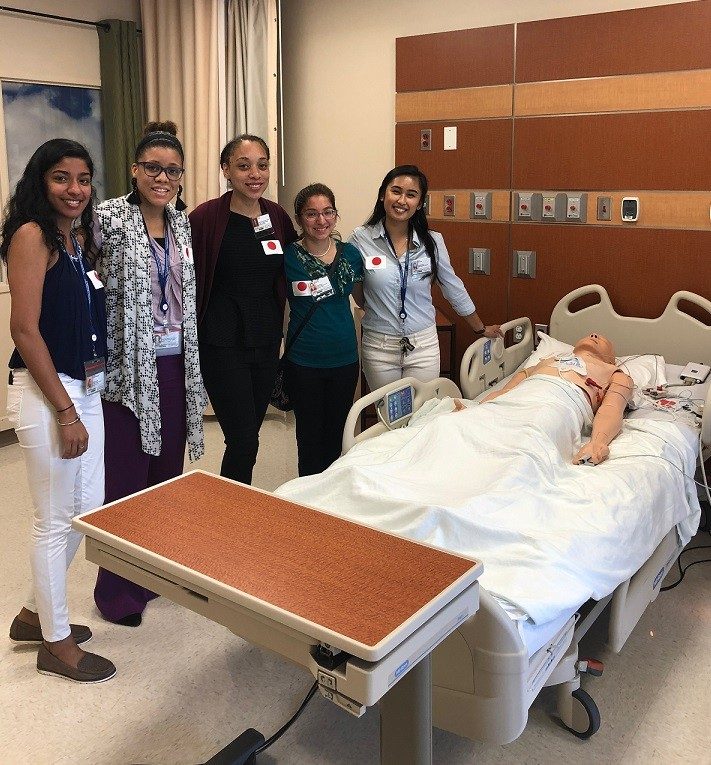
Role-play in inpatient medical simulation exercises.
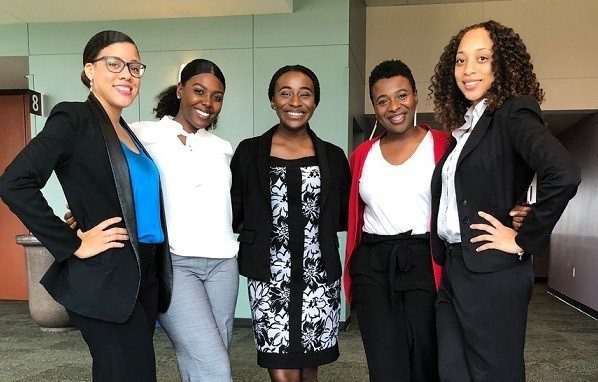
Build relationships with fellow summer students.
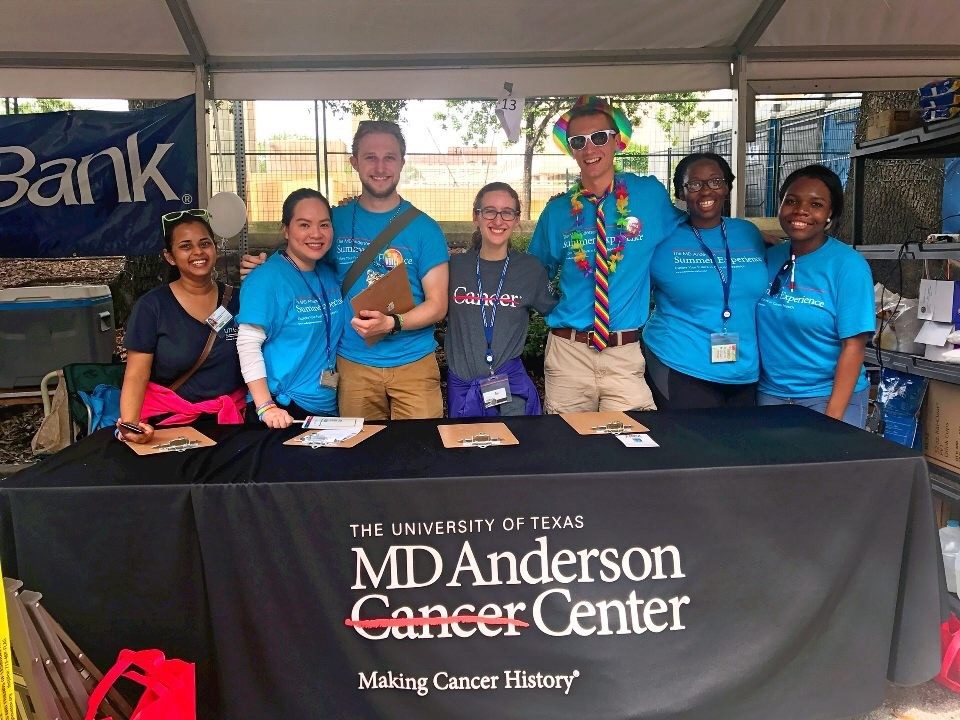
Volunteer at the annual Houston PRIDE parade.
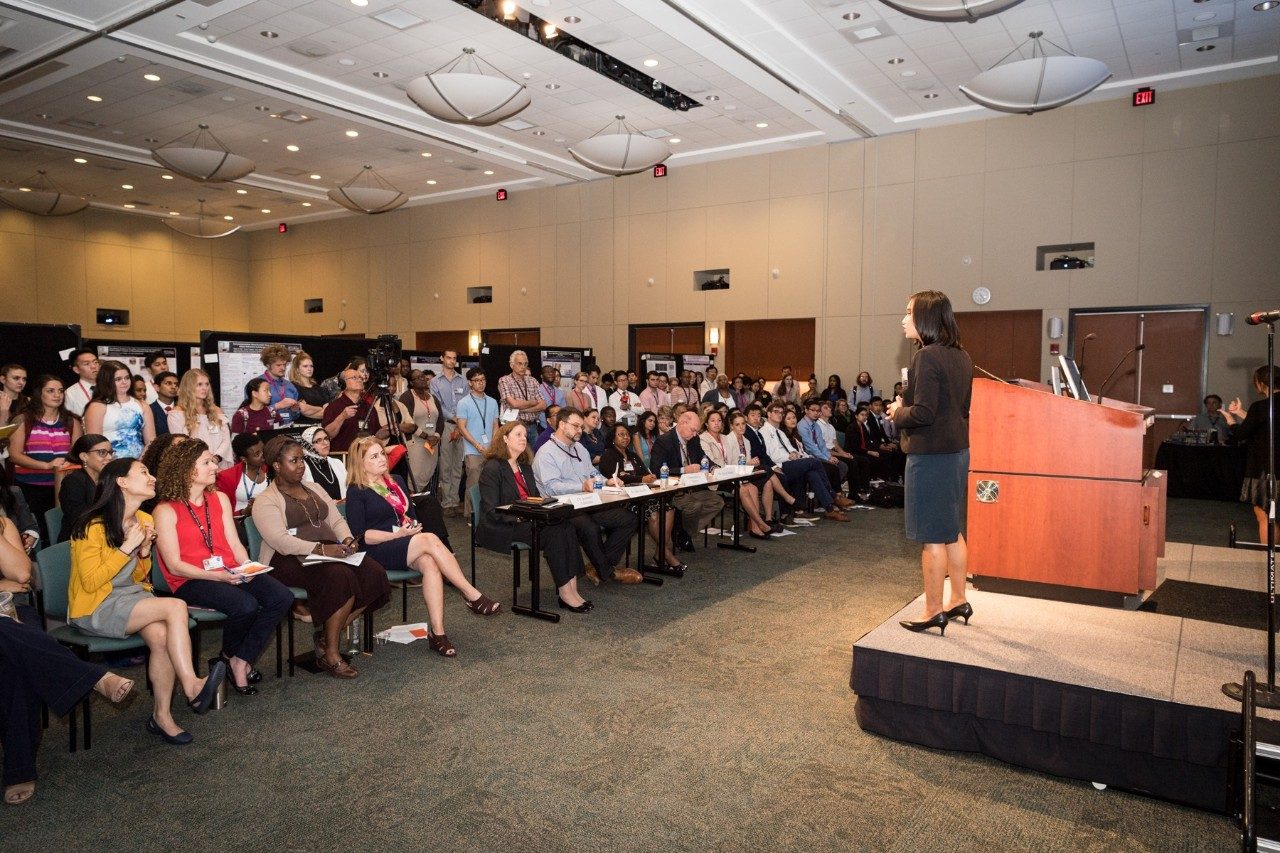
Compete in the Elevator Speech competition.
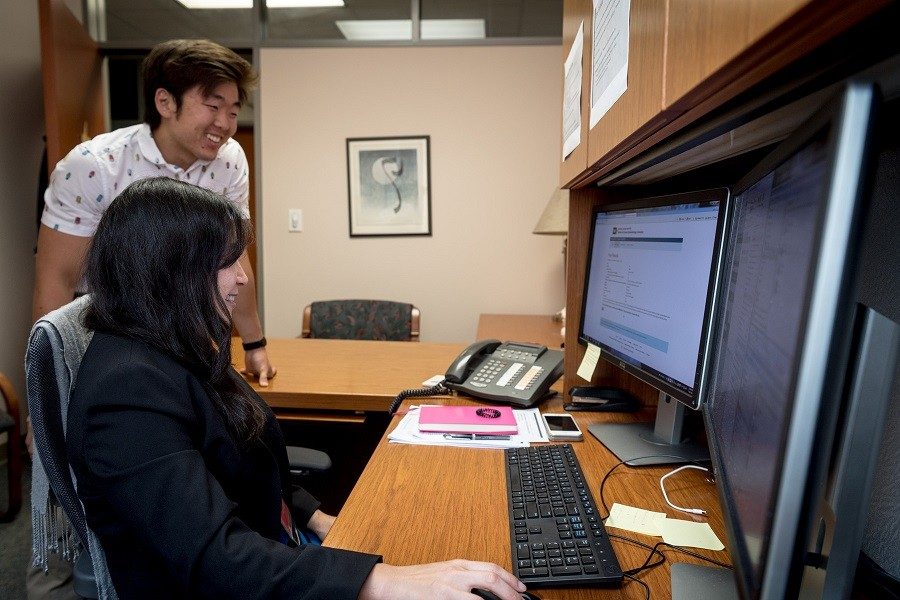
Collaborate with a faculty mentor on a research project in cancer prevention.
Our Labs
Learn more about our faculty and research taking place in our labs.
Conferences
View conferences available for continuing education credit.
